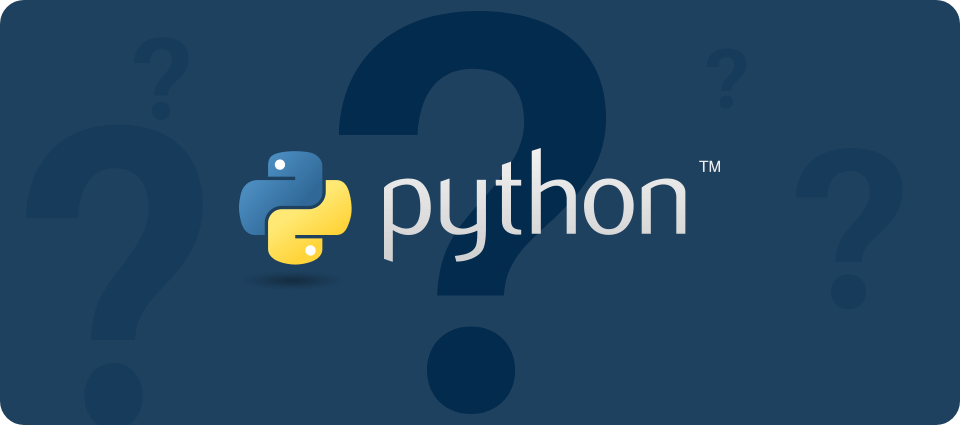
Why you should learn Python programming
Whether you are a software developer, a data engineer, a data scientist or even just someone who loves writing code as a hobby, you have most likely heard of Python at some point in your career. Python is a very popular object-orientated and high level programming language that was created by Guido van Rossum, a Dutch programmer and was initially released in 1991 on February 20 (Python Institute, 2019). Python is ranked as the world’s most popular programming language to date, with a rank of first place according to the Popularity of Programming Language Index (PYPL, 2022). Python has been widely adopted for several applications in the world of technology and is highly favoured as a data driven language among web developers, software developers, mathematicians and statisticians. So what exactly makes Python so popular and why should you consider adding it to your programming stack as a developer?
What makes Python is so popular?
Python is often considered platform neutral given that it supports an array of operating systems and platforms. The major operating systems supported by Python include Windows, Mac and Linux which are the leading operating systems across the globe. Apart from this, Python is especially useful as a programming language when working with novel and interesting technologies such as the Raspberry Pi, a highly capable computer about the size of the average credit card. Technology enthusiast often use the Raspberry Pi to build custom hardware solutions that make use of sensors and data that is frequently used in automation and projects driven by the Internet of Things (IoT). GlobalNewswire (2022) notes that IoT market was valued at roughly USD 310 billion in 2020 and is expected to reach USD 1,842 billion by the year 2028.
Python is also one of the most human readable languages to understand, its syntax is fairly easy to grasp even for beginner programmers who are just getting started on their journey of becoming a software developer. Given that the language much easier to read when compared to other low-level languages such as C++, Python can achieve very similar functionality in its programs in much fewer lines of code which enables developers to rapidly build prototypes, this allows for increased speed in production when developing software.
What can Python be used for?
Aside from its application in IoT, Python has been widely adopted in many other domains. In web development, Python can be used as a back-end service for managing and interaction with both structured and unstructured databases. In statistics it is being used to develop complex predictive models by data scientists as a means to perform data analytics. Python is also used in machine learning applications, a subset of artificial intelligence (AI), where developers and engineers are able to train a neural network using unstructured raw data that enables a machine to learn through means of supervised and unsupervised learning. These are just a few examples where Python is being used in disruptive and modern technologies around the world.
The benefits of learning Python
With Python being the world’s leading programming language in many fields that are striving to be a part of the Fourth Industrial Revolution (4IR) it goes without saying that there is a high demand for developers and engineers who are familiar with the Python programming language. TechRepublic (2021) suggests that to remain relevant in today’s technology industry employees should definitely consider learning Python given the high demand of Python-related roles world-wide. According to FutureLearn (2021) there is certainly no shortage of jobs Python-related jobs with platforms such as Glassdoor reporting more than 10 000 vacancies while indeed reported about 14 000 vacancies. Furthermore, PayScale (2022) reports that the average salary for a data scientist in the United Kingdom (UK) is £41,663.
While the career prospects of learning Python are abundant, there are also technical benefits to learning the language. For example, having an existing background as a software developer, especially in front-end software development, Python is an excellent language to learn if you’ve ever wanted to become a full-stack developer. Understanding how to build beautiful user-interfaces is only one aspect of software development but investing the time to develop back-end services allows you to grasp the full system architecture which includes the data engineering aspects of a system too. Python also supports a wide range of libraries that can easily be imported into programs to manage complex tasks such as performing linear regression analysis without having to write the code base from scratch.
Closing thoughts
It is quite apparent that Python has exploded in popularity over the last couple of years, and for very good reasons. It has a wide array of applications across multiple domains, it is fairly easy to learn compared to many other programming languages and affords employees the opportunity to future proof themselves in the rapidly changing world of technology. Fortunately, there is a wealth of online resources such as courses and communities to learn how to get started with the Python programming language.



